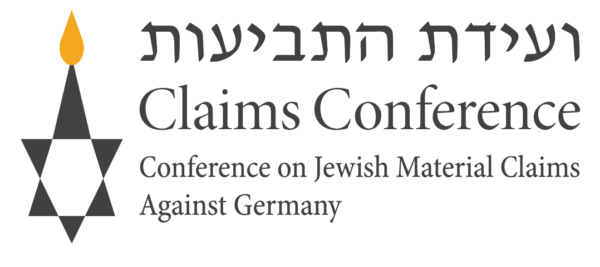Hardship Fund Expands to Former Soviet Union: Russian
Начало работы Фонда на получение единовременной компенсации (Hardship Fund FSU) на территории бывшего Советского Союза
Примечание
Информация, изложенная ниже, и ссылки на документы предназначены исключительно для граждан бывшего Советского Союза.
Гражданам других государств следует ознакомиться с информацией о Фонде помощи Hardship Fund
Комиссия по еврейским материальным искам к Германии (Клеймс Конференс) рада сообщить Вам о расширении деятельности Фонда на получение единовременной компенсации (Hardship Fund) на всей территории бывшего Советского Союза. Это стало возможным в результате продолжительных переговоров с правительством Германии, направленных на достижение соглашения о справедливой выплате компенсации тем жертвам нацизма, которые еще не получали таковую. Гражданам, удовлетворяющим критериям, полагается разовая выплата в размере 2556, 46 Евро.
Заявление на получение компенсации от Клеймс Конференс подается и рассматривается без всякой оплаты с Вашей стороны. Если Вы уже получаете пособие от Клеймс Конференс, Вы не имеете право на получение разовой выплаты из Фонда и, соответственно, не должны подавать заявление. Заявление на получение компенсации могут подавать только лица, непосредственно подвергавшиеся преследованию и пострадавшие в результате нацистского режима. Наследники не имеют право подавать заявление. Нажмите здесь, чтобы ознакомиться с полной информацией о праве на компенсацию.
ФОНД НАЧНЕТ СВОЮ РАБОТУ 1 НОЯБРЯ 2012 ГОДА. ВАМ НЕ НУЖНО НАНИМАТЬ АДВОКАТА ДЛЯ ПОДАЧИ ЗАЯВЛЕНИЯ.
Нажмите здесь, чтобы ознакомиться с инструкциями по заполнению заявления.
Нажмите здесь, чтобы скачать форму заявления (на русском и английском языке).
Многие лица, пострадавшие от нацистского режима, ныне проживающие на территории бывшего Советского Союза, получат анкету и инструкции по ее заполнению по почте в начале декабря. Если Вы не получите анкету до середины декабря, пожалуйста, свяжитесь с Вашей местной организацией «Хэсед», чтобы получить анкету от Клеймс Конференс, или распечатайте анкету с нашего сайта. Запросы на получение анкеты по почте направляйте по адресу
Claims Conference – Logistical Department
Hardship Fund – FSU
Application Request
Postfach 90 05 43
D-60445 Frankfurt
ГЕРМАНИЯ/GERMANY
Нажмите здесь, чтобы перейти в раздел «Часто задаваемые вопросы» (“ЧАВО”)

